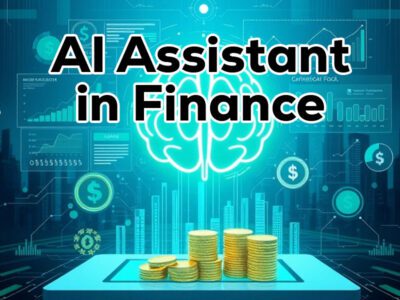
Importance of Financial Literacy among Students
Financial education is a great tool for assisting poor populations. It is especially critical for students enduring difficulties. Many low-income, marginalised communities have historically received minimal personal finance education. To develop decent citizens and bring pupils out of poverty, school leaders should teach them how to transform their formerly terrible money habits into wise and conscious money management. Students who have a strong foundation in personal finance education will be better prepared to contribute to the workforce and have a good impact on their families and communities.
Poor financial education causes worker stress.
Our pupils require solid, proven instruction that will have a tangible influence on their money management practices. However, their group or culture rarely teaches them empowering money management strategies. Today’s culture encourages people, particularly those living in or near poverty, to take out student loans, pursue degrees with low earning potential, and utilise credit cards to meet basic living expenses. However, these behaviours only get them into further financial difficulty. Carrying debt can have major consequences for an employee’s mental health and job stability later in life. I speak from experience! My spouse and I graduated with student loans and other obligations totalling nearly half a million dollars. We were the result of a toxic cultural education. But don’t simply take my word for it. Many grads would claim that they never learnt how to handle money in school or how to pay for college without student loans.
Here are some frightening statistics: Approximately 59% of college graduates enter the workforce with student loan debt. 1 By 2024, the average student loan debt per borrower is $38,883. 2 Carrying student loan debt is difficult enough on its own, but it becomes even more difficult in the workplace. Employees with the highest student loan balances are twice as likely to be seeking new jobs as those with lower debt levels. 3 Consider the impact this could have on the community and local businesses!
District leaders who are truly committed to assisting students in breaking the cycle of poverty and ensuring that graduates are prepared to constructively contribute to their communities can help prevent similar future financial issues for their students.
Find a Personal Finance Curriculum That Helps Students Now and Later.
Unfortunately, the majority of personal finance curricula on the market do not assist students in comprehending and practising essential behavioural changes that will lead to financial success later in life. Learning facts and book knowledge about money is necessary, but it isn’t sufficient. To build significant, long-term life changes that will prepare children to be good citizens and contribute to their communities, they must see examples of sound, commonsense money management. They must be confident in their ability to apply the personal financial skills they are learning in school to real-life situations. Only then will they be able to improve their own financial habits and positively affect people around them.
Many school administrators are just unaware of the various personal finance curriculum options that are available.
So, what can you do about this? Fortunately, there is an alternative method to financial literacy for students that avoids these traps.
Begin by emphasising the necessity of teaching pupils personal money skills from an early age. Then, look for a personal finance curriculum that is more than just knowledge-based and provides a proven plan for transforming money management. A great personal finance education program should achieve three objectives:
- Teach excellent money habits that pupils can develop and carry into adulthood.
- Encourage pupils to achieve financial independence through financial literacy. This means they understand how and why debt should be avoided, how to manage a budget, and how to purposefully save, spend, and give.
- Career readiness empowers students to pursue their true calling. Without the burden of student loans, students will have more freedom to seek professional possibilities that match their objectives and skills.
Look for a curriculum that promotes actual behaviour change through positive habits. Making a budget, understanding money beliefs, paying for college with cash rather than loans, and a variety of other practical topics will help students gain confidence in their abilities to manage their money today.
But don’t simply take it from me. When asked how she manages her money now and after graduation, Siara L. of Somerset High School responded, “I feel my future is more secure today. Learning about my budget and finances using The Five Foundations will make my life a lot easier in the future since I will understand the problems, implications, and solutions.”
Learn more about Ramsey Education’s Foundations in Personal Finance and how this commonsense personal finance curriculum may benefit your students and foster good citizenship in your community. This is the type of financial education that will have a significant positive influence on your school system and community. Remember that financial literacy education is more than just imparting knowledge; it is also about developing beneficial habits and behaviours.















